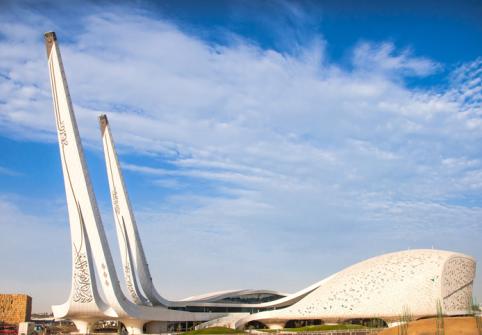News
HBKU CIS’ Lectures to Highlight Transformation of Islamic Society through the Ages
17 Sep 2018
In the interest of fostering strong civic knowledge on the modern evolution of Islamic finance and social sciences, the College of Islamic Studies (CIS) at Hamad Bin Khalifa University (HBKU) is set to host a series of upcoming lectures this month. Scholars and industry insiders are scheduled to deliver seminars in Education City on topics including the role of Shariah maqasid in Islamic banking, the transformative consequences of the First World War on the Middle East, and pioneering Muslim contributions to psychotherapy.
Underlining the importance of supporting intellectual discourse on historical and theological challenges that are relevant in present-day contexts, Dr. Emad El-Din Shahin, dean of CIS, said: “At CIS, we recognize the importance of diverse thought and contemporary theories in enriching debate, especially in cases where finding malleable solutions is crucial. We can no longer rely on sole perspectives and one-dimensional answers to complex, global challenges. Through our public lectures, we invite local and international speakers to face inquiries in open forums and share their insights with the community. This helps our college fulfill its commitment to enhancing public dialogue on key Islamic challenges.”
On September 18, Dr. Abdulazeem Abo Zayd, professor of Islamic finance at CIS, will deliver a public lecture on “Maqasid Development of Islamic Banking Products.” In the Arabic language, maqasid is defined as the “objectives” or foundational goals. Maqasid al-Shariah, or Shariah objectives in relation to Islamic finance, analyze certain banking practices and their purposes, identifying which are Shariah-compatible and which are not. This lecture will focus on common Islamic banking products to identify which are most likely to be adopted and which will be rejected, and certain regulations that can be implemented to convert certain practices into being acceptable from the maqasid point of view.
In “WWI: The War that Transformed the Middle East,” scheduled on September 27, Dr. Eugene Rogan, professor of Modern Middle Eastern History and director of St. Antony’s College Middle East Centre at University of Oxford, will highlight the transformative impact of the First World War on the geographical and political dynamics of the region. The Allied Victory in 1918 resulted in the emergence of the modern states of the Middle East after four centuries of Ottoman rule. This lecture will investigate the conflicts engendered by the post-war partition, and how the boundaries continue to remain in place, in spite of socio-political and economic strife plaguing the region.
At the end of the month, on September 26, CIS is scheduled to host Dr. Okasha Eldaly, research associate, Center for Humanities and Social Sciences, Qatar University and Dr. Mamoun Mobayed, consultant psychiatrist, director of Treatment and Rehabilitation Department, Behavioural Healthcare Centre to discuss the foundations of Islamic psychology. The seminar will highlight the work of prominent Muslim polymath Abu Zayd Al-Balkhi, and his pioneering discovery of psychotherapy and psychosomatic medicine. As the first to differentiate between neurosis and psychosis, Al-Balkhi’s immense contributions to science during the Islamic Golden Age will be the focus of the lecture.
These upcoming public lectures are the latest to be announced in a series of year-round CIS events. All events are currently open for registration to the public and will be hosted at Education City.
